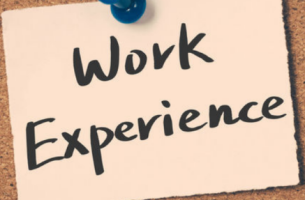
Matthew Owen
Jun 02, 2023
Pitfalls of ChatGPT when using it for candidate attraction
Here at CAST UK, we recently discussed the benefits of ChatGPT for recruitment, which is well worth a read if you are considering using it for your recruitment efforts. However, there are also some pitfalls that hiring managers should be aware of, so here we focus on those and outline possible solutions to each.
1. Lack of human touch
Lacking empathy and the emotional intelligence of a real human being, ChatGPT has the potential to respond inappropriately or insensitively. Human expression involves a lot of nuances – especially when it comes to tone of voice, which adds context to whatever is being conveyed – and the AI of ChatGPT may struggle to interpret this nuance correctly.
Some candidates may feel uncomfortable with the lack of human interaction in a recruitment process, bland or poorly written text, chat or email responses can negatively impact their perception of the company. It’s important to balance the use of AI with human touchpoints to ensure a positive candidate experience. This is especially important when using ChatGPT to craft job descriptions and job adverts.
This lack of human touch from AI can also impact the process of screening CVs and candidate application portals by auto screening and ruling out candidates that it believes are not to be a good fit for the company due to not having the ability to process tone, personality or soft skills and instead are focusing on “hunting for weaknesses” within applications. This could lead to missing a ‘diamond in the rough’ reinforcing the importance of working along side of AI to get the best out of it and not relying on it entirely for this process.
2. Initially Expensive and Time-Consuming
While ChatGPT for recruitment can save your time (and therefore money) once it is up and running, developing a Chat GPT model from scratch to suit your business which can assist with various tasks such as developing employer value propositions, crafting compelling job descriptions, advertising roles, handling and assessing applications, and even answering questions from potential candidates, this is both expensive and time-consuming.
The development process requires huge amounts of text data as well as AI specialists and machine learning expertise. The initial layout for a comprehensive ChatGPT model for recruitment can be prohibitively expensive for smaller businesses, but there are ways around such a big expenditure.
To mitigate this, exploring AI vendors offering customised recruitment-focused ChatGPT models or considering pre-trained ChatGPT models developed for recruitment purposes can be viable alternatives. While the latter may provide a more generic training foundation, it can still offer sufficient competency for recruitment-related tasks. It's essential to carefully evaluate these options to strike a balance between cost and functionality, keeping in mind the specific needs and limitations of your organization.
3. Potential for Miscommunication
The domain knowledge of ChatGPT can be severely limited without a huge investment of time spent in the development process. This can lead not only to inappropriate and insensitive responses but to outright miscommunication between candidates and hiring managers.
Obviously, this needs to be avoided in order to keep candidates happy, and it is possible even with a basic ChatGPT set-up. Keep your AI up-to-date with all of the latest industry-specific jargon and buzz words. Also include all relevant technical terminologies the AI may encounter during any interaction with a candidate, as well as appropriate interpretations and responses.
4. Integration with Existing Systems
Another challenge of using AI in recruitment is integrating it with existing systems. Many organisations already have established recruitment processes and systems in place, and introducing AI can disrupt these processes. It’s important to ensure that the AI technology being implemented can seamlessly integrate with existing systems and processes to avoid any negative impact on the recruitment process. Additionally, proper training and education for recruiters and hiring managers on how to effectively use AI technology is crucial for successful integration.
When considering implementing AI in recruitment, it’s important to assess the compatibility of the technology with existing systems. This includes applicant tracking systems, HR information systems, and other recruitment tools. The AI technology should be able to integrate with these systems seamlessly, without causing any disruptions to the recruitment process. Additionally, proper training and education for recruiters and hiring managers on how to effectively use AI technology is crucial for successful integration. This will ensure that the AI technology is being used to its full potential and that it is enhancing, rather than hindering the recruitment process.
5. Not Representing your EVP
Using ChatGPT for recruitment can certainly help businesses save time and resources, but it may not fully reflect your Employee Value Proposition. ChatGPT's responses can lack the authenticity and humanl touch that is crucial to communicating your company's culture and values to potential candidates.
While AI can provide helpful information about a role and it’s requirements, it’s unlikely to be able to fully convey the unique aspects of your organisation that embody why it's a great environment to work in. Therefore, it is important to balance out using ChatGPT with other recruitment tools, such as employer branding and social media, to ensure that your EVP is effectively communicated to your targeted talent pools.
6. Learning Human Bias
AI in the recruitment process has the potential to eliminate human biases and promote fairness. However, there is a risk that AI systems can learn and perpetuate biases if not properly updated. For example, an AI tool used by Amazon exhibited bias against women in their hiring process and was quickly pulled from use.
The tool reportedly downgraded CVs from female candidates and favored male applicants. This case demonstrates the potential pitfalls of relying solely on AI systems for candidate screening, as they can inadvertently perpetuate or even amplify existing biases present from the data set they learn from.
This highlights the importance of carefully curating training data and implementing ongoing monitoring and adjustment to ensure fairness. Human oversight and intervention are also crucial in this aspect. By combining AI with human judgment, organisations can strive for a more inclusive and equitable recruitment process.
Although ChatGPT for recruitment can provide significant benefits, recruiters must be mindful of potential pitfalls that may make candidates feel undervalued and unimportant. When responses appear robotic and pre-written, candidates may perceive an employer as treating them as just another number. Therefore, it is crucial to remember that ChatGPT can assist in recruitment and should be used in conjunction with human expertise, rather than as a complete replacement. By leveraging ChatGPT alongside human recruiters, companies can achieve a balance between efficiency and personalisation, resulting in a more effective recruitment process.
Our cutting-edge tools combined with the human touch mean we find the best talent or role for you, matching skills and culture. After all, it’s less crowded on the extra mile. Get in touch to start your search.


